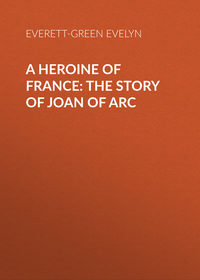 полная версия
полная версияSquib and His Friends
“They have been there always,” he said to himself, with a sensation akin to awe, “just as they are now, with nothing between them and God. I think He must have made them so grand and white and beautiful because He liked to look at them, and if He likes to look down at them, why, it must make them good!”
There was something very grand and wonderful in the way those white peaks stood out against the darkening sky in that clear transparent air. A short time ago they had been dyed a wonderful rose pink, as they caught the reflected glory of the setting sun; now they were rather grey than red, with a look of almost awful aloofness and grandeur as they stood up in their spotless whiteness and purity.
And then as the child watched this change with a strange sense of fascination, the great round moon rose slowly above the ridge, and at once new beauty and grandeur were thrown over the whole world. Great towering shadows seemed to be cast athwart the valley, and then the snow-slopes began to glimmer and shine with a new and almost unearthly radiance. Squib held his breath as he watched the moon rise over the snow-covered ridge, and the transformation of those rugged peaks and fissures into a new world of ebony and silver.
How long he would have watched it, forgetting all besides, may well be questioned, but he was quickly disturbed by an anxious voice, —
“Liebchen! – Liebchen! – what art thou doing? Thou wilt catch thy death of cold up here in the nipping mountain air!”
And Squib was quickly caught up in a pair of strong arms and hustled with ignominious rapidity into the queer little bed which seemed a necessary part of Swiss life.
But he was altogether too happy to be seriously ruffled by any such summary proceeding; and all he did by way of retaliation was to keep fast hold of Lisa’s hand and refuse to let her go till she had talked him to sleep with the most entrancing of her stories of the mountains.
CHAPTER IV.
THE LITTLE GOAT-HERD
Surely never had boy been so happy before as was little Squib in his mountain home!
He had perfect liberty to rove where he would, so long as he went nowhere that Czar could not follow him. This stipulation, as Colonel Rutland observed, would keep him from any precipitous ascents or descents, and restrict his wanderings to safe paths; and the fidelity and sagacity of the dog were quite to be trusted should the child lose his way. Czar would be certain to bring him safe home again; but, indeed, there was not much fear that Squib would lose his way. He had a decided “bump of locality,” as Uncle Ronald called it, and the green valley with its many attractions was a safe place for the boy to wander in.
For the first fortnight of his residence at the chalet, Squib had no disposition to stray very far away. There were so many attractions close at hand that it was needless to go far afield for his pleasures. Why, just by climbing up through the meadows and wood behind the house you could find more flowers than could be properly pressed and arranged in many days – gentians, small and large, the delicate little soldanella with its cyclamen leaf, the tiny and exquisite pinguicula with its fairy-like white bloom, and the yellow anemones which made quite a carpet in one little glade, hemmed in between the spurs of a dim fir wood. Then down by the bed of the little brawling torrent, which was always racing and tumbling down the hillside to join the wider river below, grew in obscure and shady corners the golden auriculas with their graceful bells and silvery leaves. As to the lower-lying meadows, they were glorious with their wealth of many-hued flowers, the blue salvia, purple crane’s-bill, yellow clover, the wild salsafy with its golden bloom, that Squib believed to be a rudbeckia until somebody told him to the contrary, and warned him against including it in his collection, as it was a tiresome thing to have in the garden, and grew rampant and masterful beyond bearing. The delicate Alpine roses, too, with their white and yellow clusters of blossom, were a perfect delight to the little botanist, and he hardly knew where to begin or where to stop in digging up roots to be kept in his garden behind the chalet, ready for final transportation to England.
His mother took great interest in his flowers and plants, and Mrs. Lorimer knew the names of almost all the Alpine plants, and whereabout they grew, whilst Lisa was able to give him practical help in digging and delving, and told him all sorts of stories about the different properties of the herbs he sometimes brought home, and how they could be distilled into Enzian-schnapps as she called it, though what sort of stuff that might be Squib could never make out.
And then there were all Lisa’s stories to be listened to again, with even a greater sense of fascination here amongst the mountains themselves than in the nursery at home. Why, the little men of the mountains – the Bergmännlein, as Lisa called them – might have their caves in the sides of any of these hills; and it always seemed as if everybody who once strayed in there came out a hundred years older at the end of what had seemed to him a very short time. Squib sometimes wondered with awe if he would ever find his way accidentally into one of these caves one day, and come back to find the chalet in ruins, the saplings grown to monster forest trees, and the glacier rolled farther down into the valley; for Lisa declared that it was always moving on – on – on-although Squib found it hard to believe.
Talking of the glacier always made Lisa speak of the Seligen Fräulein as she called them – the ice-maidens, who loved to woo to sleep the unwary travellers who trusted to their soft guiding voices, and let themselves be lured from the path and down – down – down into some cold dim crevasse or grotto whence no return could be made. Squib listened with a strange sense of fascination as Lisa told him of these snow-white maidens with shining eyes, and hair like powdered crystal, and how they sang to sleep the victims they had lured to destruction, and how that sleep lasted for years and years, and how the sleeper was found at last, still smiling in his dreams, when, after many generations had passed away, the ice-maidens would yield up their prey at a certain icy portal where the river came rushing and sweeping out of a great green ice grotto, in which the Seligen Fräulein were said to hold high revel.
“And do they wake when they come out?” asked Squib with breathless eagerness, but Lisa shook her head.
“Na! na! – they never woke again. Nobody ever woke who had felt the kisses of the ice-maidens. They were jealous – they would not have their captives leave them for others. Na! na! It was an ill thing to get with the Bergmännlein or the Seligen Fräulein. The little Herr must beware of all such things.”
How much Squib believed of all these mountain legends, and how much Lisa herself believed, it would be hard to say; but the fascination of the subject was the same, even though there might be a lingering doubt in the mind both of listener and teller. The sense of something weird and unseen, uncomprehended in these lonely mountain heights, grew upon the child rather than diminished as he came to dwell among them. The legends which had grown up in the mouths of the peasants were but the expression of those feelings which life in such lonely heights cannot but suggest – the sense of mystery and unreality, the consciousness of great overwhelming forces at work, the existence of a spiritual and eternal world just beyond the ken of human knowledge and experience.
Often the talk between the pair would drift from the fanciful superstitions of an imaginative peasantry to the region of the world of spirits dimly indicated in Holy Scripture, and Squib would bring out his little Bible and search there for such passages as seemed to give glimpses into the unseen, and strive to translate them into the language so much more familiar to Lisa. The book of the Revelation was now studied by him with an interest it had never held for him before – though like most children he had often read the mystic words with a strange sense of fascination; but now, as he watched from some lonely knoll or rocky height the gorgeous pageantry of the clouds, or the reflections they cast upon the everlasting snows, he would almost think that he saw the heavens opened and the armies of heaven riding forth on white horses, conquering and to conquer. Or amid the wonderful lights of sunrise or sunset, when the mountains glowed and burned with lambent fire, and the sky was almost too dazzling for the eye to rest upon, he would fancy that, far, far away in its golden depths, he could see the great white gates of pearl, or even the shining city coming down out of heaven, like a bride prepared for the marriage.
But of these things he seldom spoke – perhaps because he had hardly words in which to express them; and besides it was not often that he found time for such solitary musings; for the days were very full of occupation, and Squib might have been “made of gutta-percha,” as Uncle Ronald declared he was, for his readiness to go everywhere and see everything.
So what with his own private botanizing excursions, and the walks he took with father and uncle, the days seemed to race by almost faster than he could count; and it was only when the three gentlemen had departed for a mountaineering expedition that was likely to last for some weeks, that Squib felt himself at leisure to go further afield and explore the more distant parts of his valley.
He had expected to be his mother’s companion now, but this expectation was not realized. Not only was there Mrs. Lorimer to be with her, but a party of friends from England, who were travelling about in the neighbourhood, swooped down upon the chalet only the day after the mountaineers had left, and they gladly accepted Lady Mary’s cordial invitation to remain her guests there for as long a time as the vacant rooms should be at their disposal.
This sudden invasion made a great deal of difference to Squib’s plans. He was no longer wanted as his mother’s companion. She was busy and well looked after. Even Czar was not required now, when there were so many people about – and, indeed, the valley seemed as safe as the house at home, and the people far more honest; while all this company made the servants busy, and even Lisa’s time was so fully taken up in attending to so many ladies, that she had but little of it to give to the child, and was glad for him to amuse himself in his own way.
It was quite easy for Squib to do this. Indeed, on the whole (since his mother really did not need him), he was very glad of the liberty he now enjoyed to make long expeditions with Czar, and really explore the valley from end to end. He would get something to eat packed in a little satchel in the morning – Lisa always took care that it should be something good, and that there should be plenty of it – and with this little satchel slung on his back, and his iron-pointed stick in his hand, and Czar bounding beside him, the happy little pilgrim would start off after his early breakfast, long before the visitors had thought of leaving their rooms, and would not return, save by his own wish, till the evening shadows began to lengthen, and the valley to lie wrapped in a soft, tender shade.
As for drink – was not every mountain rill a fountain for him, free from all danger of pollution? And there were scattered huts and chalets, where a drink of goat’s milk could always be obtained, and Squib soon came to have many a friend along the various routes which he pursued in turn; for all the simple peasant folk had a ready smile for the little English boy with his big, grey eyes and sunny curls, and square, quaint face so full of thoughtful curiosity.
But though the old folks always looked kindly at him, and exchanged a morning or evening greeting as he passed, Squib had as yet made no way with the bare-headed, bare-footed children who were to be seen from time to time playing round the huts. If he spoke to them they only stared, and they seemed afraid to approach Czar, who generally stood very close to his little master if there were any huts or people near. Sometimes they fled at his approach as if afraid the dog would attack them, and Squib was not able to understand their guttural exclamations as he understood the salutations of the grown-up folks. He was rather sorry for this, as he was a friendly little fellow and would have liked to fraternize with some of the children; but they were rather like little savages up here, he thought, and he went on his way solitary, but happy, satisfied with the companionship of Czar, and talking to him when the need of speech came over him.
But all this was soon to be changed.
One day Squib took a new route, and dropped almost perpendicularly, by a very tangled path, to the bottom of the valley, instead of skirting along its side as had been his fashion heretofore. It happened to be a very warm day, and this tangled woodland path had greater attractions than those which led through stretches of sunny meadow. The sound of the brawling torrent at the bottom made refreshing music in his ears as he descended, and when at last he found himself at the bottom of the ravine, he was delighted to see that a narrow bridge of planks had been thrown across the torrent there, by which he could easily cross to the other side.
It was a dizzy crossing for any one unused to such transits, but dizziness was a feeling unknown to Squib; nor was Czar in any way disturbed by the passage. He followed his little master soberly and carefully, and in another minute both were on the opposite side of the familiar valley.
This was quite a new world for Squib, for, as is so often the way amongst these hills, one side of a valley seems to open out quite a new region, and it is not easy to believe oneself so near to old haunts.
Squib clambered up the opposite bank of the torrent, which was rather rough and stony, and then found himself at the entrance of a little wood, through which a narrow footpath ran. He followed this upwards for some distance, and found himself at last out on a green shoulder of the mountain spur, with the top of the ridge only a little above him. He must climb up and look over, he said to himself, and a few minutes’ breathless clambering brought him to the top; and now a new world, of which he had never dreamed, lay spread out before him.
From the chalet he had fancied that the range of snow-peaks opposite rose directly from the bed of the torrent he had just crossed. Now, however, he found that a whole panorama of meadow, wood, and water lay between. Sloping gently away from where he stood were emerald-green meadows full of flowers, watered by little sparkling rills and foaming cascades tumbling down the hillsides into a lake at the base as blue as the sky overhead. To the right and left the valley seemed closed in by great snow-peaks, which stood like two silent sentinels looking down upon it; and opposite to Squib were patches of cultivated land, with here and there a little peasant’s chalet – the wooden roof weighted by heavy stones, piles of wood cut into lengths heaped up against the wall on the lee side, the whole house raised up on piles to keep it above the level of winter snow, and the overhanging eaves and protected gallery showing that it was lived in all the year round, and not just an abode for the summer months.
The tinkling of many bells was filling the air, and Squib’s attention was speedily attracted to a herd of brown goats feeding at a little distance. Seated on a green knoll, with (oddly enough, as it seemed to Squib) a piece of paper and a pencil in his hands, was a little boy in the rough, snuff-coloured clothes so common in the district, and a flapping felt hat a world too large for him. He sat with his back towards the little intruder, apparently intent upon some task.
At the boy’s feet lay stretched a rough-coated dog with his head on his paws. The dog seemed to be guarding both the goats and the boy, for he would rise sometimes and pursue a vagrant goat, who was in danger of straying away too far, and would make use of the opportunity for making a rapid circuit round the whole drove and addressing a word of admonition to them, after which he would return to his old position at his little master’s feet.
Squib was always interested in dogs, and looked at this one with approval, holding Czar by the collar so that their proximity might not be at once divulged. It was a good-sized dog with a shaggy blue-black coat, a square head, a strong shoulder, and a look of general benevolence and intelligence.
But he was too good a watch-dog to be long without scenting out the presence of intruders, and suddenly, sighting or smelling them, broke into a succession of short, sharp barks, running towards them bristling all over.
Czar returned the challenge by uttering one of his deep bays, and this aroused the attention of the little goat-herd, who, as soon as he saw the pair on the brow of the hill, rose slowly to his feet and called to his dog in commanding tones.
Squib, holding Czar by the collar, and bidding him be good and peaceable, went forward smilingly, and when he got nearer he saw that the little boy was a cripple, one leg being so much shorter than the other that he could only stand upright with the help of a rough little crutch. His face, too, was pinched and pale in spite of its coat of summer tan. He had a pair of big, wistful, dark eyes, but except for this the face was not remarkable in any way, the features being insignificant, and the eyelashes and brows of the same pale, sandy tint as the hair.
“Guten Tag!” (which means good-day) said Squib, gravely, and the little boy returned the salutation in the same words, whilst the two dogs eyed each other suspiciously. For a minute the two children stood looking at each other almost in the same tentative and wondering fashion, and then Squib’s face suddenly lighted with the smile which few could resist.
“Let’s sit down and talk,” he said, suiting the action to the words. “You’ve got a dog and I’ve got a dog. I think we ought to be friends.”
The little goat-herd smiled in response, and sank down upon the mossy knoll where he had been before, looking out at the little English Herr from under his sandy brows. He was not very ready with his tongue at first, but he was wooed into speech before long by Squib’s frank friendliness. He spoke a queer sort of mixed language, which Squib did not find quite easy to follow all at once; but a freemasonry was quickly established between them, and the shaggy dog lay blinking at the little stranger, as much as to intimate that he understood them both.
“My dog’s called Czar – what you would call Kaiser,” said Squib, with his hand on Czar’s great head, although the two dogs seemed to find no cause of quarrel between themselves; “what’s yours called?”
“His name is Moor,” answered the little goat-herd, “because he’s black. But I often call him Ami, and that means friend – because he’s the best friend I have.”
“That’s how I feel about Czar!” cried Squib, a link at once forming itself between the pair. “He goes everywhere with me, and they all know I am safe when Czar is there. Does Moor come out with you every day when you take the goats up here to the hill?”
“Yes, I couldn’t come here if it wasn’t for Moor.”
“Why not?” asked Squib, full of interest.
“Because I’m lame. That leg isn’t any use to me walking. I can get up hill with my crutch and a stick; but I can only get down with Moor helping me. I put my leg over his back like this, and then I can hold myself up; but I couldn’t go hardly anywhere without Moor.”
“Dogs are so nice and kind and sensible!” said Squib, drawing a long breath of satisfaction. “May I kiss Moor for being so good?”
Moor submitted to the caress in pleased silence wagging his bob-tail all the while, and he kissed Squib back again as if to ratify the compact of friendship. Then he and Czar were formally introduced, with much wagging of tails, and many snuffs, and a few dignified gambols. The two boys looked on with great interest, and Squib suddenly asked, —
“What is your name?”
“Seppi,” answered the child, “and I live over there in that house,” and he pointed to one of the chalets Squib had been observing, which were larger and more solid than the little huts for cattle which lay around his own present home.
“And do you live there always? or do you go down into the valleys in the winter?”
“Our thal is warm – we stay there all the year round,” answered the little boy. “The little Herr sees how it lies – all open to the warm sun in the south and west, and sheltered by the great, beautiful mountains from the cruel north. We get the snow, to be sure – and we are shut up for the winter months, except those that can go about in sledges or with their snow-shoes. But with us the winter does not last as it does in other parts. When the beautiful spring comes, and the sun looks over the mountain ridges for many long hours day by day, then the snow begins to get full of strange holes, and the ice slips down off the roof, and there is a great cracking and crashing amongst the pine trees, and the rivers begin to wake and leap into life, and the snow goes slipping, slipping down into them, and they grow deeper and wilder and fiercer; and it seems as if the valley were full of voices and the laughter of the fairies, pushing the snow down the cascades and clapping their hands to see it swirled along in the fierce water. Then the men take up the bridges – because they would all get swept away – and for a little bit we are more shut in than ever, for it is nothing but a world of water. But the sun goes on shining, shining, shining, and then some morning we wake up and the valley is green again, and the cows and goats go out to the hill slopes, and by-and-by the cows from the valleys come up, and life begins again as it is in the happy summer-time. But yet I like the winter too. It is very beautiful, although I do miss coming out here and taking care of my goats.”
All this was not said at once, but bit by bit, as Seppi sat staring straight in front of him, and seemed to see the whole scene rising before him as he conjured it up before his mental vision. Squib listened with breathless interest, seeing it all, and hearing the strange voices of the valley almost as clearly as his companion. The lake so blue and smiling now, how did it look when lashed by winter storms and filled high with masses of half-melted snow?
“Do the Seligen Fräulein play there when it is all covered with ice and snow?” he asked; but at those words his companion turned upon him a half-frightened look.
“What does the little Herr know of the Seligen Fräulein?” he asked in a low voice.
“Only what Lisa tells me,” answered Squib; “that they live in the ice and the snow, and love to catch mortals and send them fast, fast asleep with their cold kisses; and that nobody ever wakes again whom they have kissed to sleep. Have you ever seen them, Seppi? Lisa never has, nor the Bergmännlein either.”
Seppi shook his head as if in awed doubt. His voice was very low as he made answer, —
“I don’t think that I saw them; but I was once down, down, down with them in their blue ice home.”
“O Seppi! – tell me!”
“I don’t know how to tell, for I could never remember. That’s what everybody asks of me, but I can’t tell them anything. I was crossing the glacier with father, oh, long ago now, when I was quite a little boy. He had a rope round his waist, and he had tied the end of it round mine to keep me safe. I was following behind him when my foot caught in a little crevasse in the ice, and before I could get it out the rope jerked me off my feet and along, and then suddenly I found myself falling, falling. I was going down, down, down a great, green fissure, and the rope had broken, and there was nothing to hold me. After that I don’t remember anything till I woke up at home, with my leg all bound up; and ever since that it never grew any more, though I grew, and so I have been a cripple. And the people look at me and shake their heads, and say that I have been with the ice-maidens, and that that is why I am lame; but the good Herr Adler, he told me once that I must not think of it like that.”
“Why not?” asked Squib. “And who is the Herr Adler?”
“He is a man of God – I don’t know how else to call him,” answered the child with a look of reverence upon his face. “He lives away over in your country, little Herr; but he belongs to us too – or to Germany perhaps; and sometimes he comes here when he wants a rest, and stays one week, or two, or three here in this thal, wandering about the valley, and thinking his beautiful thoughts about everything. He always comes and talks to me. He is good to every one he meets, but to the little children most, I think – though, to be sure, the old women say he is best to them; and the men, that nobody understands them and their troubles like the Herr Adler. We all love him here, and count it a good summer when he comes. He was not with us last year. Perhaps God will send him to us soon.”









